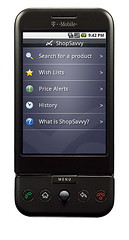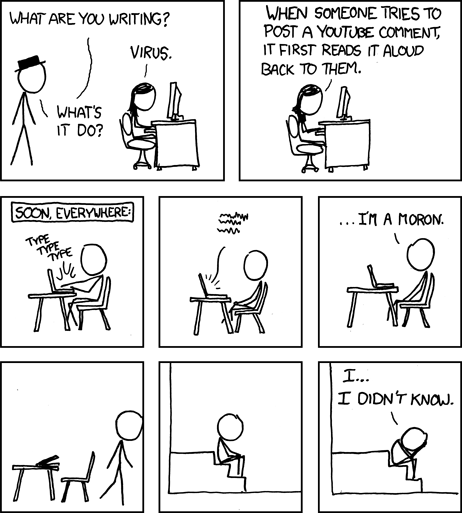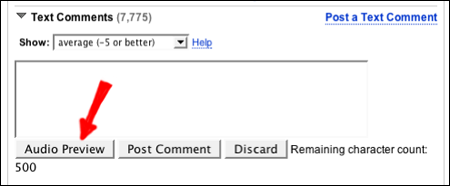RIAA Abandoning Mass Lawsuits In Favor Of Backroom 3 Strikes Policy
It really was just three days ago that we suggested that if the record labels actually wanted anyone to take them seriously concerning their desire to come up with more constructive solutions to the business model challenges they face, they should at least stop suing folks as a gesture of trying something new. The usual recording industry defenders in the comments claimed this was a ridiculous suggestion, but it appears that the RIAA is at least taking a small step in that direction. The Wall Street Journal is reporting that the recording industry (the WSJ mis-labels it 'the music industry') is abandoning its strategy of mass lawsuits.
First off, this is a step in the right direction -- and we think it's great that the record labels have agreed to do this, even if it's many, many years too late. And, it's hardly a huge concession. The lawsuits have been an unmitigated disaster. They have done nothing to slow file sharing (in fact, the publicity generated from the lawsuits has often been credited with alerting many people to the possibility). The strategy has also splintered the file sharing space into many, many different players, many of them way underground, unlike in the early days when there were a manageable number of players who could be worked with proactively. It's also done tremendous damage to the brands of the major record labels (Universal, Warner, EMI and Sony) and the RIAA itself -- leading many to swear off buying any of their products. Finally -- and most importantly -- the strategy did absolutely nothing to help musicians adapt to a changing market that was opening up tremendous new opportunities both to spread their music and to profit. So, kudos to the folks at the RIAA for finally realizing how backwards this strategy has been.
The fine print
But, of course, this is the RIAA, so you can rest assured that the details aren't anything to be happy about. In exchange for not filing mass lawsuits, the RIAA has worked out backroom deals with numerous ISPs (brokered by Andrew Cuomo -- who has a history of using baseless threats to get ISPs to censor content they have no legal responsibility to censor). The exact details are a bit sketchy, but it sounds like a variation on the ridiculous three strikes policy that has been (mostly) rejected in Europe as a violation of basic civil rights. Basically, these ISPs will agree to be the RIAA enforcers. Based solely on the RIAA's flimsy evidence, the ISPs will either pass on, or directly email subscribers with, warning letters. Depending on the specifics of the agreement, the users will get one or two more warning letters before the ISP will start limiting their internet access or potentially cutting them off entirely. If you think this sounds suspiciously like what Europe just rejected, you're right.
And, of course, the RIAA still says it may sue those who don't stop file sharing after all of this. They're just backing away from the mass lawsuit filings that they've been doing.
Why this is still a bad deal
Okay, so over the past few weeks, recording industry defenders have said that we were jumping the gun in criticizing a potential plan because it wasn't final. Our point was that since the record labels claim they want a 'conversation,' these deals shouldn't be negotiated in backrooms not involving substantial stakeholders. So what happened here? Yup, a backroom deal was negotiated without any involvement from users. And it was done under the direction of Andrew Cuomo, who just spent many months browbeating ISPs into agreeing to censor content.
So, hopefully, we won't be told that we're being premature in criticizing this plan -- but somehow I find it unlikely.
This plan is hardly a major concession by the record labels and the RIAA. The lawsuit strategy was a massive failure in almost every facet. Giving them up is hardly a big deal. It's admitting what pretty much everyone else knew from the beginning: that suing your fans and customers is a monumentally dumb move. Ending a brain-dead, self-defeating policy is worthy of kudos, but only for finally recognizing the obvious -- not as some magnanimous gesture.
And in exchange for the RIAA stopping its policy of shooting itself in the foot, we get ISPs making a huge concession themselves, agreeing to become RIAA enforcers, despite the clear safe harbors they have via the DMCA. These ISPs will now be heavily involved in the process of policing their users, increasing their expense, which of course will be passed on to users.
But the biggest problem is the fact that this allows private organizations to judge users without any significant defense on their part. The stories of falsely accused file sharers are widespread at this point. IP address-based evidence is notoriously unreliable. Yet, the RIAA will be basing its notifications on such evidence. Sure, plenty of the IP addresses dug up by the RIAA are probably accurate, but we live in an innocent-until-proven-guilty world, and this does away with that completely.
Also, as the EU noted in rejecting this proposal, the 'punishment' hardly fits the crime. These days, an internet connection is a necessity -- and taking it away from people because someone is sharing the gift of music with others not for any sort of commercial gain is totally unbalanced. It takes away an individual's civil and privacy rights, all because the big record labels refuse to recognize that there are other business models out there that already work. And that final point may be the most important. As we noted in explaining why the music tax is a bad idea, none of these moves by the RIAA are actually necessary.
Musicians are figuring out plenty of fantastic business models that work wonders, and many of them actually involve embracing file sharing and using that to help grow their markets. What's wrong with letting those business models establish themselves, without brokering a totally unnecessary backroom deal that will almost certainly harm innocent people thanks to flimsy evidence?
So, yes, we're thrilled that the record labels have finally progressed to the point of realizing that mass lawsuits were a bad idea, but working out a backroom deal for a type of three strikes policy is not a particularly good solution. It's more of the same: trying to prop up an obsolete business model by a private industry unwilling or too stubborn to change with the market. That NY's Attorney General felt this private business model issue should involve his efforts in the midst of a huge financial crisis, including the largest Ponzi scheme ever, makes little sense.
If these are the 'new leaf' and 'open conversations' the record labels are insisting they're about these days, they've got an awful lot of work to do still.
(Via Techdirt.)


 With the rise of app-laden smartphones like the iPhone and Google's Android OS, now on T-Mobile's G1, many penny-pinching shoppers have downloaded barcode scanning applications onto their mobile devices. These apps allow consumers to compare the prices of merchandise on a store's shelf to competing stores in the area just by taking pictures with their smartphone's camera. The prices are instantly retrieved and displayed on the mobile phone so consumers can know before they buy if they're getting a good deal.
With the rise of app-laden smartphones like the iPhone and Google's Android OS, now on T-Mobile's G1, many penny-pinching shoppers have downloaded barcode scanning applications onto their mobile devices. These apps allow consumers to compare the prices of merchandise on a store's shelf to competing stores in the area just by taking pictures with their smartphone's camera. The prices are instantly retrieved and displayed on the mobile phone so consumers can know before they buy if they're getting a good deal.  Although this is just anecdotal evidence from one customer, it's entirely believable that without concrete store policies in place, you're going to encounter rogue employees here and there who have no idea what you're doing and will ask you to stop.
Although this is just anecdotal evidence from one customer, it's entirely believable that without concrete store policies in place, you're going to encounter rogue employees here and there who have no idea what you're doing and will ask you to stop. 


